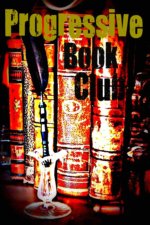Blake Snyder is well-known for his screenwriting advice. Turns out what works for film also works for novels! This guide offers advice on using index cards to write your scenes, finding that one saving trait in an unlikable character, marketing your manuscript and much more. My favourite advice is on writing the logline. Not only do you need a killer log line, but Snyder says write it before you write your novel. This will check if your story idea is strong enough.
What do you need for a killer logline? There are four essential elements every logline must have:
Irony - Character sets out to do/avoid one thing, until circumstances flip that plan on it's head! Look for key words like 'until', 'but', 'however'. Shows your characters original motivation/intention and the conflict that changes everything.
Promise - A good logline suggests a whole story. It promises big things to come. It should set up more than just the start of the story. For example, don't write: Sarah moves to France to open a flower shop. Put in the twist: Sarah moves to France to open a flower shop but finds reality does not match the dream when she is swindled out of her life savings for a run down store, can't speak the local language and discovers she's allergic to roses.
Audience - Suggests the market, who will want to read this book, who does it appeal to? Snyder suggest including an idea of the cost in production - if it's an epic film that will promises amazing special effects and big stars. That's helpful for scripts, but books have the equalising affect of all requiring the same medium to deliver (digital or paper), unless you have a specialised app with personalised games, or other expensive elements.
Killer Title - Your title should say what the story's about. Don't be vague. The title should 'nail the concept' without being overly obvious. When a reader spots your title they should start imagining the plot. This one line will show if your character and conflict are strong enough for an appealing story.
Snyder suggests holding off writing your story until you've written the killer log line. If you have to keep fudging your logline to include all the elements above, you may spot something your story is missing.
Want to learn more about writing loglines? Check out these links:
Gaston Broadcast: Logline examples
Creating Bomb-proof Loglines by Lenore Wright



Thanks for this. I always need help with my logline.
ReplyDeleteWagging Tales: 4 Essential Elements Of A Successful Logline >>>>> Download Now
Delete>>>>> Download Full
Wagging Tales: 4 Essential Elements Of A Successful Logline >>>>> Download LINK
>>>>> Download Now
Wagging Tales: 4 Essential Elements Of A Successful Logline >>>>> Download Full
>>>>> Download LINK hR
This is much needed, thanks!
ReplyDeleteLove that book. And I always need logline advice:)
ReplyDeleteCharmaine, great focus on the logline. I learned so much from this book that I was completely clueless to. I checked the book out of the library a couple months ago, but i'ts definitely on my to-buy list now. I think it's a great checklist for elements of a good story. Thanks for sharing this focus.
ReplyDeleteAll very good advice, thanks for sharing. I've had a log line for two different books on the Log Line blog - very good discipline!
ReplyDeleteGood advice. Always find it hard to reduce ideas to a single line.
ReplyDeleteEven though a good bit of STC didn't apply to writing novels, what did really clicked with me. I finally *got* plot, and logline, too. Great post.
ReplyDeleteGood tips on nailing that logline!
ReplyDeleteNever thought of writing it before beginning the story/novel. Good tip to try.
ReplyDeleteI loved the section on loglines too!
ReplyDeleteHi, Charmaine. Thanks for sharing this. Hmm? For my first three novels, I ended up waiting until after the books were written before "worrying" about loglines. Yikes! Guess I need to rethink that, huh?
ReplyDelete-Jimmy
This will go a long way for me. Thanks Charmaine!
ReplyDeleteWriting the blurb is the only bit of writing I loathe! Maybe if I got it out of the way to start with, I would dread it less... worth a try! :-)
ReplyDeleteSynder is the best!
ReplyDeleteA killer title really is key. Great post!
Love the 'allergic to roses' bit. That one detail hooks the sweater of my interest with the promise of more 'clever.'
ReplyDeleteI suck massively at log lines, queries, synopses, all of the pitching part. Well. I have in the past. Still plugging away.
yes! logline & a killer title! he really helps us think!
ReplyDeletegreat job giving it more depth. have a nice weekend!
love the cover of the book :)
ReplyDeleteVERY NICE, Charmaine! You must have enjoyed this one. I see that logline has caught many people's eye, and rightfully so. Great listing of why they're so important.
ReplyDeleteIt reminded me of the movie, "The Holiday," with Cameron Diaz and Kate Winslet. Cameron was a movie trailer maker and her life had various loglines.
Sorry I'm so late in getting around. Just now coming out of that bad spell.
Wagging Tales: 4 Essential Elements Of A Successful Logline >>>>> Download Now
ReplyDelete>>>>> Download Full
Wagging Tales: 4 Essential Elements Of A Successful Logline >>>>> Download LINK
>>>>> Download Now
Wagging Tales: 4 Essential Elements Of A Successful Logline >>>>> Download Full
>>>>> Download LINK xP